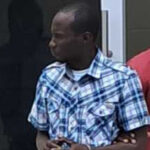Former Minister of Education Ronald Jones has expressed deep concern that education authorities appear to be mum on the problems plaguing several public schools, instead leaving “consultants” to speak for them.
Jones who served as education minister in the David Thompson and Freundel Stuart administrations from 2008 to 2018, acknowledged that education had its issues during his tenure, but he is worried that those in management positions were not communicating directly to teachers and members of the public and giving assurances that they were working to get the problems resolved.
He said it was important for authoritative figures to address their constituents and the nation on matters of national interest as it was their responsibility to account for what was happening at schools, adding that failure to do so was “dangerous”.
Jones questioned why it was seen fit for consultants and spokespeople to be the voice of the ministry, a trend he observed throughout the Mottley administration.
“The Ministry of Education is not unique in seeing these persons being sent across the system,” he said. “I firmly believe that in the Ministry of Education, you don’t want somebody to, to sanitise what is happening but that those persons who have responsibility must face the public themselves. In this case that would be the minister, the Chief Education Officer or elements of her support staff such as deputies.
“I am concerned that this attempt to bring these so-called specialists and consultants into the environment as a means of putting shadows across the faces of people is in itself dangerous. There are realities which confront us, the hiring of the superfluous elements within this public service or within the structure is dangerous.
“They don’t have any responsibility for education or culture or for tourism. They are just there as sanitisers of reality. Let us know the truth, let us know the reality . . . rather than this cosmetic engineering of processes to bring issues to the place of the people. We are packing too many consultants and advisers [into the mix]. Yes, you need some of them in strategic areas; I would not deny that but I am at a great loss to put sense to all of this.”
Last week, President of the Barbados Union of Teachers Rudy Lovell raised concerns about what appeared to be a new means of reporting issues to the ministry.
Lovell said that the union was not formally told that the ministry had a communications specialist or a stakeholder relations consultant and only was aware of their existence through the media.
He stated then that the “union would not be communicating with any outside entity apart from those employed directly in education to address concerns regarding teachers”.
Jones, in support of the union’s stance, said that it was crucial for management to speak on major issues and to move with alacrity to get the situations under control.
“I am not hearing my Chief Education Officer on these things, I am not hearing in any concentrated way the voice of the ministers . . . I want to hear them, the officials, the technocrats, telling me that these are the decisions and the directions that we are taking. If they cannot communicate these things, they have no right to be there. I am not interested in sanitising. I am interested in the Barbadian people knowing the facts. Once the facts have been ascertained, put it before the people. We don’t want people to hide behind a communications specialist and sanitise statements,” he said.
Jones, a three-decade veteran teacher before entering politics, declared that if the ministry is upfront about the various issues affecting the school system, entrepreneurs with certain expertise may come forward and give of their service in an effort to ensure the learning experience of students was not marred.
Stressing that it was not his intention to make the issues in education political, he said that based on his experience, it could be difficult for the ministry to acquire the necessary funding and resources to remedy the ongoing environmental issues disrupting the learning process of students.
He said: “The State has to provide necessary resources for cleaning and the repairs. It might not have been budgeted for but you have to find some way to take care of these issues. I cannot accuse the ministry or the government of not paying some attention because during my tenure, in the care of the Democratic Labour Party, we had some issues arising as well.
So it is more complex than seeking to make a political point.
“It is that the health of the students, the health of teachers and all the other workers at the school should not and must not be compromised. And therefore, all the available resources in the country from the environmentalists, the hygienists, all of those persons who have skills must bebrought to bear.”
Jones added that every school should have an active health and safety committee that should report to the union and to the ministry. He also said that there should be tests both in the internal and external school environment to determine what factors were contributing to the presence of mould and other environmental issues, noting that a more “rigorous” maintenance schedule should be implemented and janitors should be equipped with cleaning agents and training to deal with certain environmental issues.
Since the start of the school term seven weeks ago, classes at several schools across the island have been affected by environmental issues.
St Bartholomew Primary, St Giles Primary, The Lodge School, Lester Vaughan, St Stephen’s Primary, Grantley Prescod Primary and Gordon Walters have struggled with varying air quality problems over the past weeks. (SZB)
The post ‘Sound of Silence’: Why are educators ‘mum’ on school problems? appeared first on Barbados Today.


